Best ways to take your body measurements
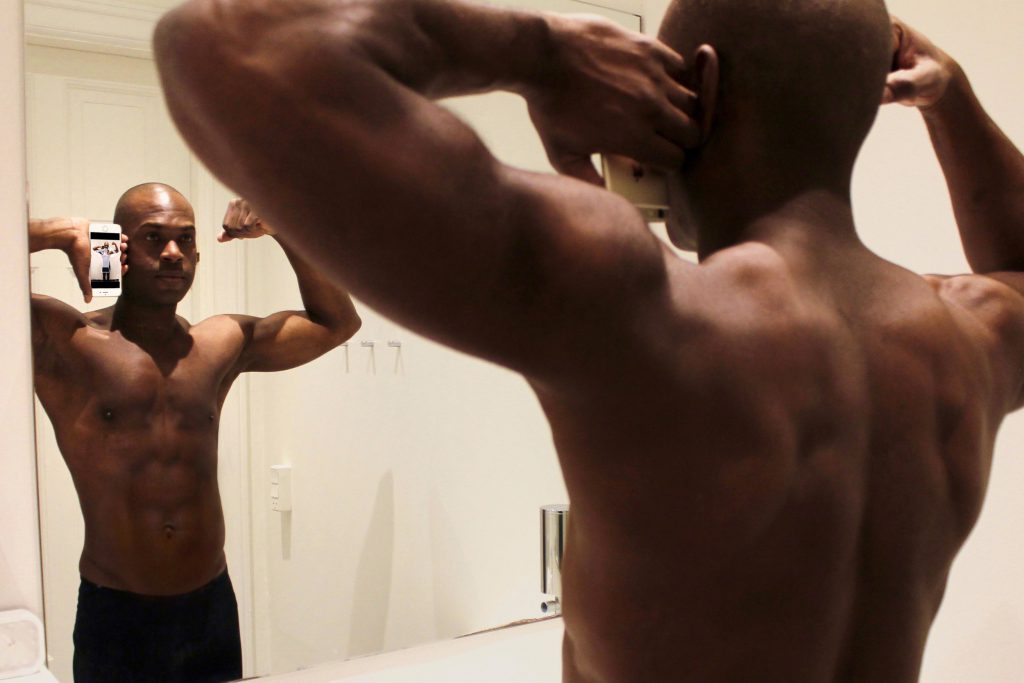
Why is it important to measure your body?
You are what you measure – or at least that’s what we believe at BodyBarista – especially if you’re tracking your weight loss measurements or bodybuilding measurements. More and more measuring devices are popping up, and technology is making it easier and easier for any fitness and sports enthusiast to track their body. The more we know, the more informed decisions we can make. Knowing your exact body measurements enables you to change your exercise routine, focus on specific areas, better understand your body and ultimately, improve your physical appearance. Physical appearance is most often the number 1 reason for training or practicing a physical activity – so it’s essential that you are informed of the details of your physical appearance.
How to take body measurements
How you’re going to take your measurements relies mostly on you and your goal (e.g. weight loss, bodybuilding, toning). What you want to be looking at are the areas you are working on and their progress. If you’re following a routine that should get you fitter in general, you want to take measurements regularly and of your entire body. This ensures that you keep an eye on any small changes that your body goes through, and if you have a baseline you want to keep, getting regular feedback will help you correct small changes faster.
If you’re mostly focusing on your abs, chest, arms, biceps, waist – that is your upper body, take regular measurements of your upper body; if you are also working on your legs, make sure you measure your entire body.
What are the tools at your disposal that you can use to measure the body?
The classic weighing scale
If you’re like one of the millions of people in the world, you also own a scale that you keep in your bathroom and seldom use. The reason for rarely using the weighing scale is that it doesn’t really offer any helpful information. Have you experienced getting up on the scale one day and returning a perfectly adequate number on the display, but not feeling exactly happy about it? Your body weight fluctuates during the day, the month (even more so for women), and the scale doesn’t measure fat mass vs muscle mass (which is heavier than fat mass), it just measures mass.
And for most people, that’s just not good enough.
Of course, today there are smarter scale options out there that can give you a better overview of your physical state, and we’ll get to those throughout this post; but it is important to point out that only looking at your weight is not constructive.
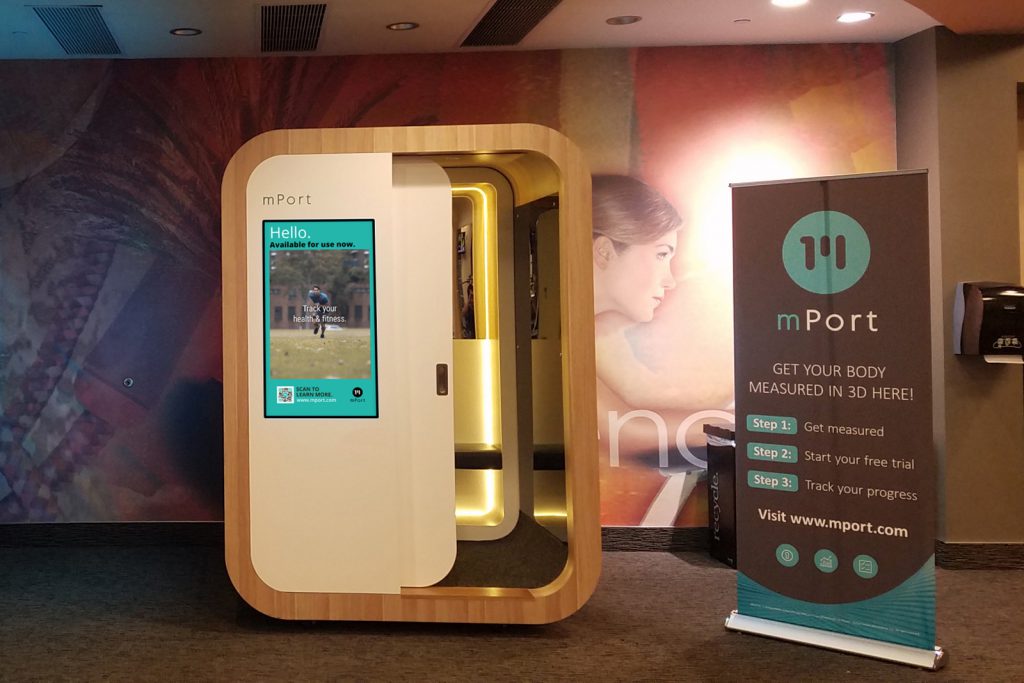
3D body scan
3D body scans can be a great tool to find out your fat percentage, BMI (Body Mass Index), weight and muscle mass – but it can also be a bit like going to the doctor for a blood test. When using a 3D body scanner, you can’t have eaten or drunken anything in the past 4 hours, you can’t have taken a bath, you can’t have been physically active, and you should have used the toilet before getting on the machine. Basically, when using a body scanner, you need to prepare for it thoroughly, which is not an easy task with a busy schedule. That said, the body scanner can give you some numbers that are interesting to monitor.
If you’re putting in a considerable amount of effort into your fitness plan, you probably won’t mind putting in considerable effort into measuring yourself with a 3D body scanner on a regular basis at your local gym.
A popular method: Bioelectrical impedance analysis (BIA)
Most of you will be familiar with this method, too; if you’re not, you most likely have the opportunity to use it at your local gym. BIA measures your body fat percentage, but it might not return the most accurate calculations out there. The way it does body measurements is by sending a slight electric current through the body that measures the resistance of the body mass. Fat mass has a higher resistance than muscle mass, which is how the body fat percentage is calculated.
There has been some debate regarding the accuracy of these devices and experts generally agree that it depends on the quality of the device. A wide range of these devices can be found both in gyms and in stores, such as FitBit or Tanita.
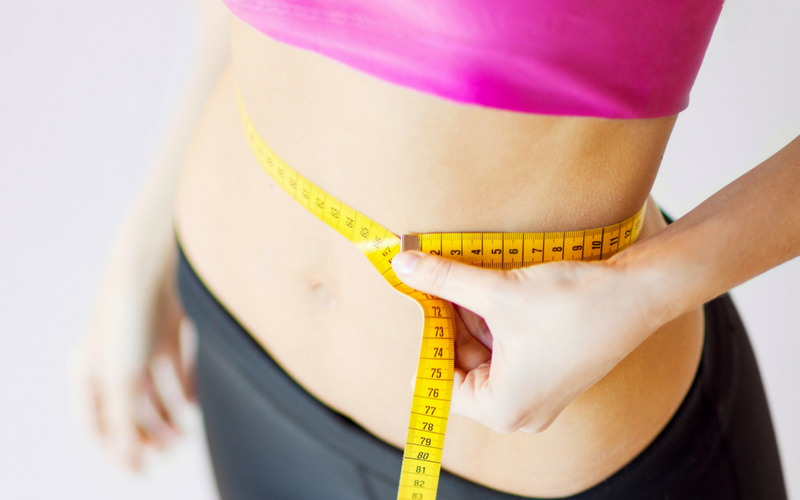
Measuring with a tape measure
One of the most reliable ways of taking body measurements is something that has worked for centuries: the tape measure. This solution gives you the option of tracking your body measurements in the most detailed way. Upper arm, neck, upper thigh, chest, hips, waist – all these body parts number by number – but unfortunately a time-taking process. It can easily become annoying to go through all the measurements each time you expect something has changed, but if you really want to keep a pulse on all the changes your body goes through, this is an unbeatable way to do it.
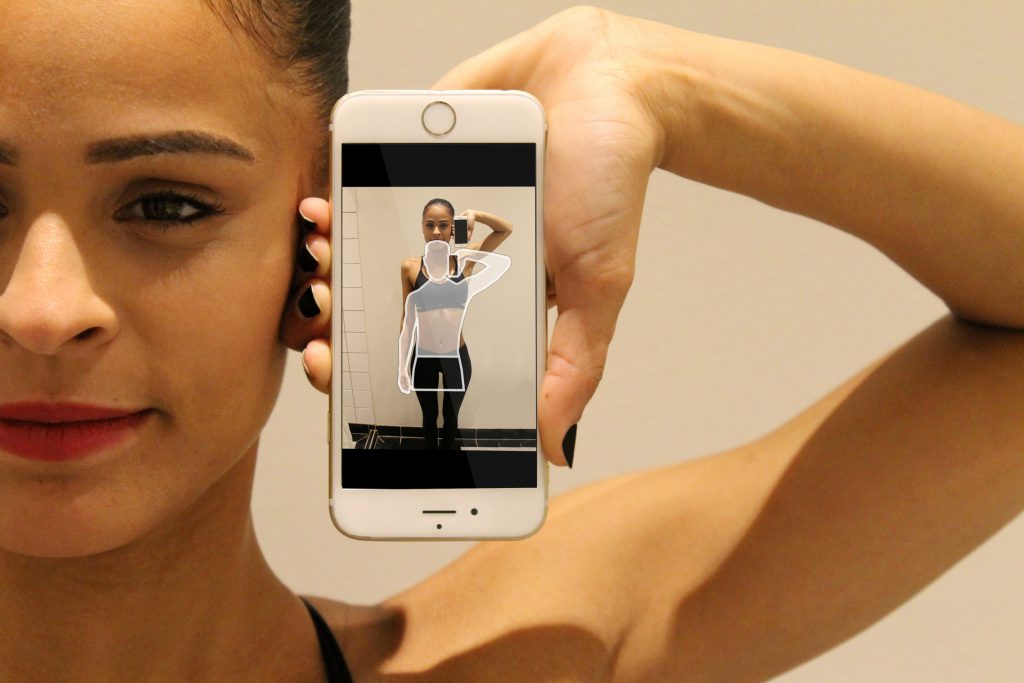
Measuring with BodyBarista
The alternative to the tape measure, BodyBarista can tell the measurements of all your main muscle groups – 12 in total – but in a much faster way. As a measurement tracker, it tracks the changes of your body every time you take a measurement.
How do you take a measurement? Easy.
Step 1: Take a picture within the app
Step 2: Validate the points on the picture (pin the points to your body parts)
Step 3: Look at your data in graphs and pictures over time
With the BodyBarista body measurement tracker app, you can track your measurements whenever and wherever you like (free at the gym).
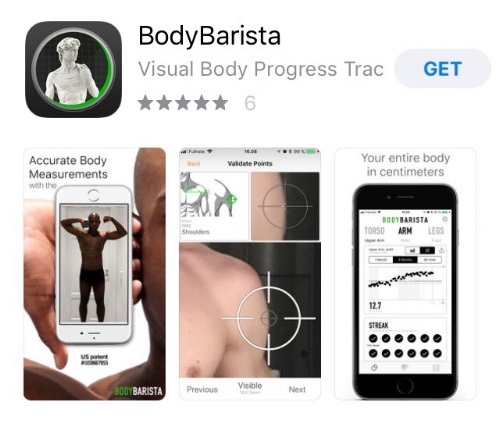
Conclusion
Measuring your body and your measurements has never been as easy as it is today. Over 100 years ago when the bathroom scale was invented, we welcomed the device as the latest revolution in physiology. Today, the classic weighing scale seems like an outdated way to tell your measurements, when technology has enabled devices to give smart and actionable feedback on your body such as body fat percentage, muscle mass, circumference etc. If you have the possibility and patience, intelligent devices are plentiful both in gyms and in stores that are reliable and accurate. For a quicker mobile solution, there’s BodyBarista. Whichever way you choose to go, today it’s perfectly normal to know your body’s measurements down to every small detail and to be able to track your fitness progress every step of the way.
What’s your preferred way to measure your body and stay on track?